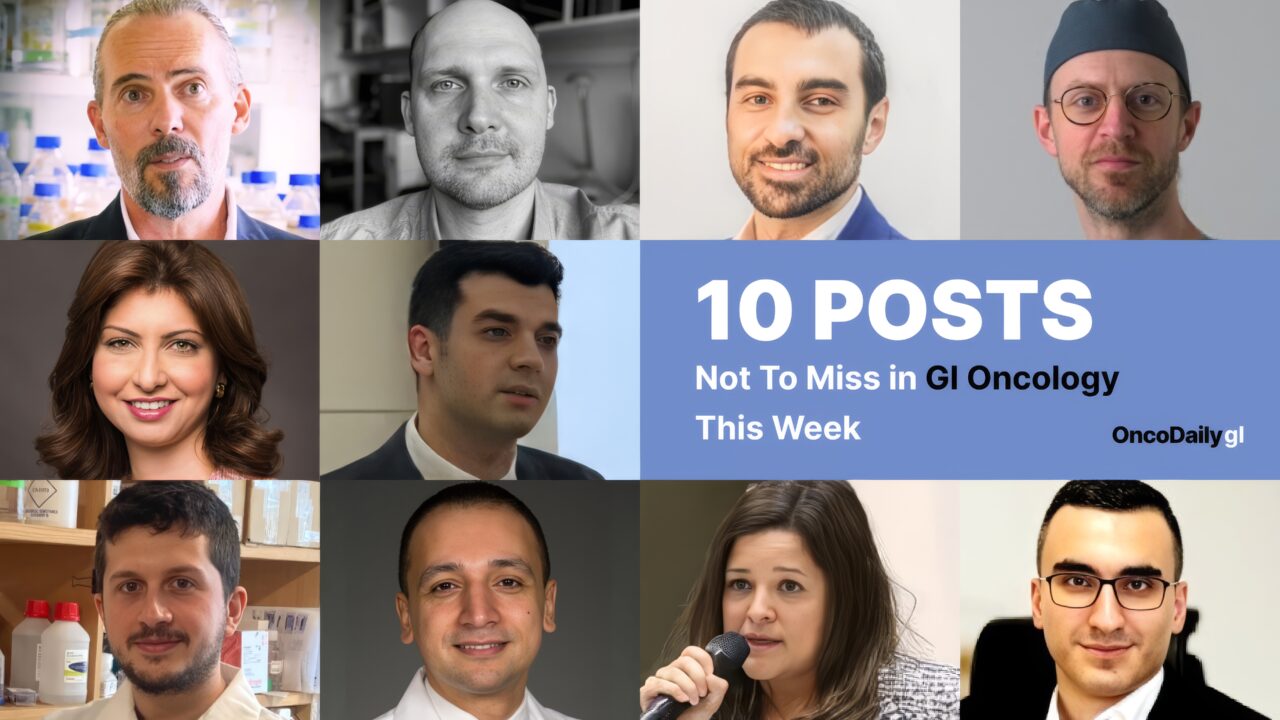The first week of November 2025 brought remarkable progress across the GI Oncology landscape — from immune-cell engineering and precision diagnostics to real-world evidence, survivorship care, and perioperative innovation.
In Nature Communications, Cancer Research, JHEP Reports, Cancers, and Molecular Cancer, investigators unveiled discoveries redefining how clinicians understand toxicity modeling, molecular profiling, tumor immunology, and the promise of hyperthermia in rectal cancer. Collaborative efforts in esophageal and pancreatic malignancies showcased the power of multidisciplinary teams linking surgery, translational science, and patient advocacy.
From Harvard to Leuven, Ankara to Gran Canaria, these stories capture a shared mission — connecting the lab, the clinic, and the human experience to deliver smarter, safer, and more compassionate care.
Filippo Birocchi, PhD – Post-Doctoral Fellow, Marcela Maus Lab, Harvard Medical School and Massachusetts General Hospital
“Thrilled to share that our manuscript ‘On-target off-tumor toxicity of Claudin18.2-directed CAR-T cells in preclinical models’ has just been published in Nature Communications
This project has been a real scientific journey, and I’d like to share two key lessons that meant a lot to me:
When life gives you lemons, make lemonade.
We started this work with the goal of developing a new CAR-T therapy targeting Claudin18.2 for gastric and esophageal cancers. Early on, we found a completely unexpected and lethal toxicity that had never been reported before. After rounds of doubt, troubleshooting, and a touch of despair, we realized it was a real on-target, off-tumor effect. Instead of giving up, we decided to follow the data and see where it led. That, to me, is one of the best parts of academic science: when the data take you somewhere unexpected but meaningful, you go with it.
Preclinical models can sometimes overcall on-target off-tumor toxicity.
We often treat NSG xenograft models as simple ‘petri dishes with fur’ that tend to underestimate toxicity. Here, the opposite happened. While Claudin18.2 CAR-T therapies can cause transient, manageable gastric toxicity in patients, in mice the same CAR caused almost completely lethal effects. It made us think: if our lab had developed this CAR, those data might have stopped it from ever reaching the clinic, and patients would have missed out on a therapy that is now showing great promise.
A complementary manuscript by Eric Smith’s lab, ‘Modeling and addressing on-target/off-tumor toxicity of Claudin18.2-targeted immunotherapies’ by Elizabeth J. Carstens et al., provides another valuable perspective on this topic.”
Enes Erul, MD – Oncology Fellow, Ankara University
“New publication
Behind every survival curve is a person asking, ‘Will it come back?’
In our study of 167 colorectal cancer survivors, 62% screened positive for high fear of recurrence. We also found something hopeful: pet ownership was associated with ~75% lower odds of high FCR (OR≈0.25)—a small reminder that connection and companionship matter in survivorship.
Grateful to our patients and colleagues who made this work possible.”
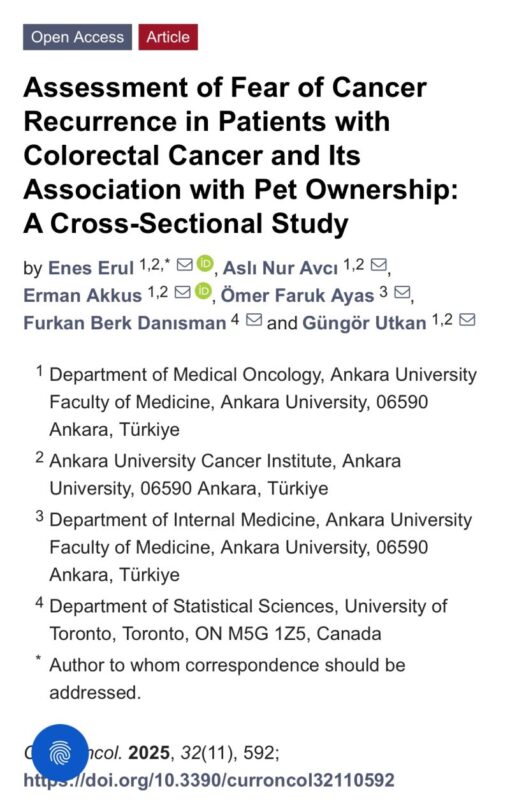
Lieven Depypere, MD – General Thoracic and Esophageal Surgeon, UZ Leuven
“Very proud of this international multicentric collaboration in Annals of Surgical Oncology on brain metastases in esophageal cancer led by Stijn Vanstraelen, MD from our UZ Leuven Department of Thoracic Surgery and BREATHE Lab, KU Leuven.
‘After esophagectomy for cancer, nodal involvement, adenocarcinoma, neoadjuvant and adjuvant therapy, and complete pathologic response appear to be risk factors for developing solitary brain metastases.
Survival of selected patients with solitary brain metastasis is possible, especially if they are able to undergo surgery combined with radiation therapy.’
Johnny Moons, Xing Gao, Suzanne Gisbertz, Julie Van Den Bosch, Biying Huang, Magnus Nilsson, Meindert Sosef, Mark van Berge Henegouwen, Bas Wijnhoven, Hans Van Veer, Toni Lerut, Philippe Nafteux.”
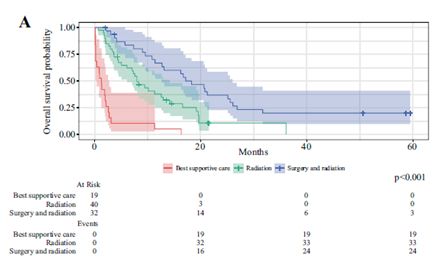
Nelson Dusetti, PhD – Research Director, INSERM | Co-Founder, Predicting Med | Pancreatic Cancer & Translational Oncology
“B-SMART: Breaking the Stromal Barriers to Improve Pancreatic Cancer Therapy
Proud to share that the B-SMART project, coordinated by Pierre Cordelier (CRCT – Centre de Recherches en Cancérologie de Toulouse), has been selected and funded by the Fondation ARC pour la recherche sur le cancer.
This interdisciplinary program aims to understand and modulate the mechanical constraints of the tumor microenvironment in pancreatic ductal adenocarcinoma to improve the delivery and efficacy of innovative therapies — including virotherapy, chemotherapy, and immunotherapy.
The consortium brings together:
Pierre Cordelier (CRCT – Toulouse),
Aurélien Bancaud (LAAS-CNRS, Toulouse),
Stéphane Bertagnoli (National Veterinary School of Toulouse),
Nelson Dusetti (CRCM – Marseille).Our team contributes through its expertise in PDAC biology and its capacity for translational mobilization, bridging fundamental research, preclinical modeling, and clinical applications.
A heartfelt thanks to the Fondation ARC for its trust and support in fostering research that connects biophysics, biology, and clinical science to transform pancreatic cancer treatment.”
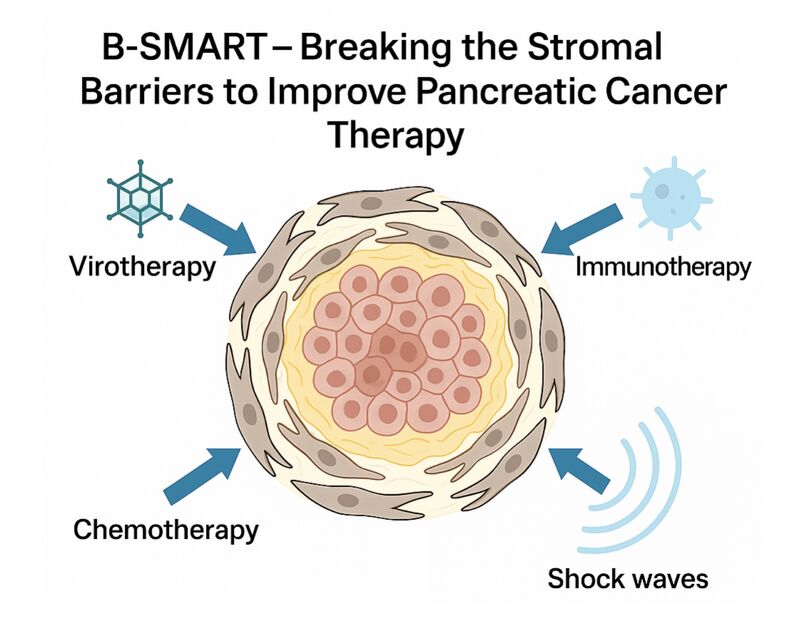
Nancy Ghattas – Vice President, US Oncology Commercial Franchise Head, Immuno-Oncology, AstraZeneca
“This post is intended for a US audience.
At AstraZeneca, we remain committed to addressing hard-to-treat cancers, like gastric cancer. This #GastricCancerAwarenessMonth, we’re showing our support for the patient community and raising awareness about this rare disease.
The symptoms are often subtle, masking an aggressive cancer that’s often diagnosed in the later stages when prognosis is much worse. What should you watch out for? Unintended weight loss, vomiting, fatigue, and persistent heartburn are all signs that might indicate gastric or gastroesophageal junction (GEJ) cancers.
While timely diagnosis offers the best hope for patients, we’re pioneering new perioperative approaches to help change the trajectory of this disease. New data shared at ESMO just a few weeks ago spotlighted the potential for our medicine, combined with surgery and chemo, to demonstrate improved survival in patients with resectable, early-stage and locally advanced gastric and GEJ cancers.
And we’re pushing the boundaries of science to go even further to improve patient outcomes — until we’ve eliminated gastric cancer as a cause of death.”
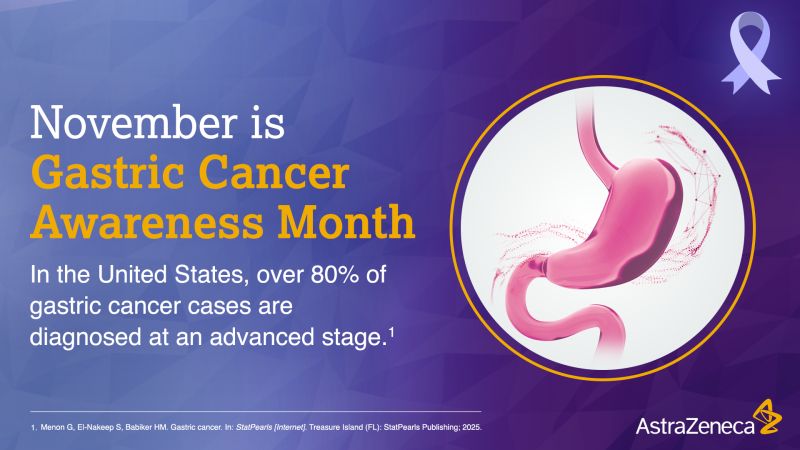
Mohamed Abdel-Mohsen, PhD – Associate Professor, Feinberg School of Medicine, Northwestern University
“Check out our new study just published in Cancer Research.
Pancreatic cancer is among the most lethal cancers and creates a tumor microenvironment that suppresses immune attack. We found one of its tricks: a ‘sugar disguise’; a healthy-cell signature. Specifically, pancreatic tumor cells express high levels of the sugar sialic acid on integrin α3β1. This sugar coat engages a glyco-immune checkpoint on myeloid cells called Siglec-10, telling them to stand down and mistakenly treat tumor cells as ‘self’ or healthy cells.
In this study, we not only describe this mechanism, but also developed a novel humanized monoclonal antibody that blocks the interaction. The antibody reawakens the immune system to attack pancreatic cancer in vitro and in animal models.
Much more work ahead, but we are excited to share this first chapter of this journey.”
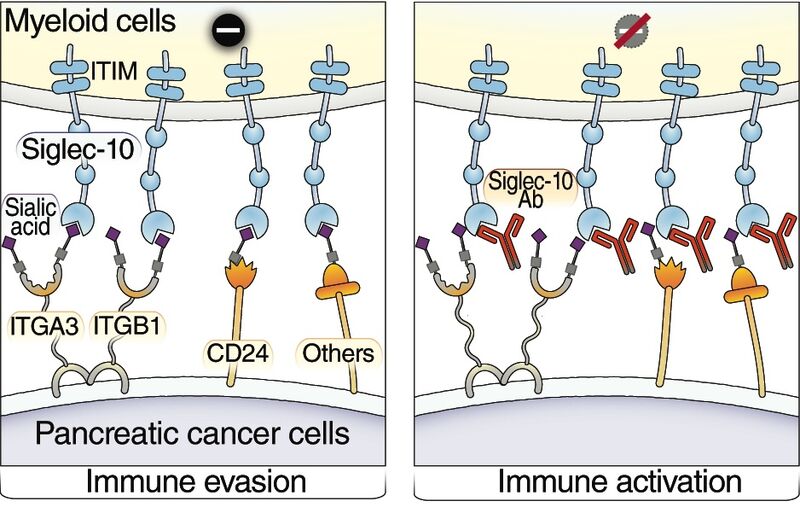
Hossein Taghizadeh, MD – Oncologist | “Gemeinsam gegen Krebs, mit Evidenz und Kompetenz!”
“New Real-World Insights in Biliary Tract Cancer (BTC): Molecular Testing Shapes Outcomes
Just published — ‘Clinical practice and implications of biomarker testing in biliary tract cancer: an observational study’(Welland Sabrina et al., JHEP Reports 2025):
Our collaborative work was just published in JHEP Reports — a large multicenter real-world study across 18 centers in Germany and Austria, including over 1,500 patients with biliary tract cancers.
This analysis provides the most comprehensive overview to date of molecular profiling in BTC and its clinical impact:
40% of patients harbored actionable genomic alterations.
Those who received genotype-matched targeted therapy achieved a median overall survival of 31.8 months, compared to 22.8 months in those without targeted therapy.
Major targets included FGFR2, IDH1, ERBB2, BRAF, and BRCA1/2.
Distinct molecular patterns were observed across BTC subtypes (iCCA, eCCA, GBC).
Substantial variability in NGS platforms highlights the need for standardized biomarker testing in clinical practice.
These findings reinforce the value of precision oncology in BTC and call for harmonized molecular diagnostics to ensure equitable access to targeted treatments across centers.”
Barbara Salas Salas, MD, MSc, PhD – Radiation Oncologist, Hospital Universitario de Gran Canaria Dr. Negrín
“Proud to share our latest publication in Cancers!
‘Neoadjuvant Radiochemotherapy Combined with Locoregional Hyperthermia in Locally Advanced Rectal Cancer’
This study reports the first Spanish experience integrating deep regional hyperthermia (HT) into both short-course (SCRT) and long-course (LCRT) neoadjuvant protocols for rectal cancer.
Main results:
HT was feasible in both groups — 100% of SCRT and 63.6% of LCRT patients completed ≥50% of sessions.
No ≥grade 3 HT-related toxicities were observed.
Most symptoms were mild and transient.
Radiotherapy and surgery proceeded without delays.
These findings demonstrate that deep radiative hyperthermia can be safely and effectively combined with standard treatment, opening the door for broader clinical implementation.”
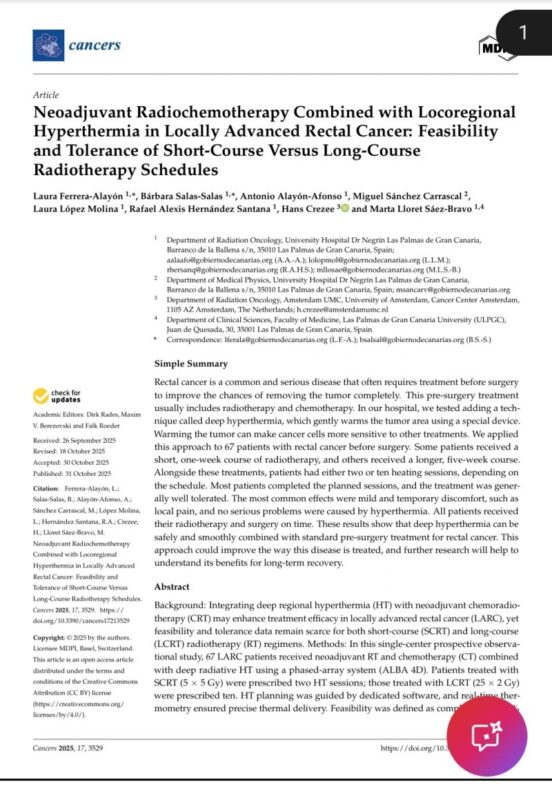
Roberto Borea, MD – Medical Oncologist, Postdoctoral Researcher (Rolfo Lab, The Ohio State University) | PhD Student, University of Genoa
“A few days ago, I had the honor of presenting our study at #ISLB25, now out in The Journal of Liquid Biopsy.
We show that a DNA methylation–based ctDNA tumor fraction assay can monitor chemotherapy response across cancers, helping guide earlier, better decisions.”
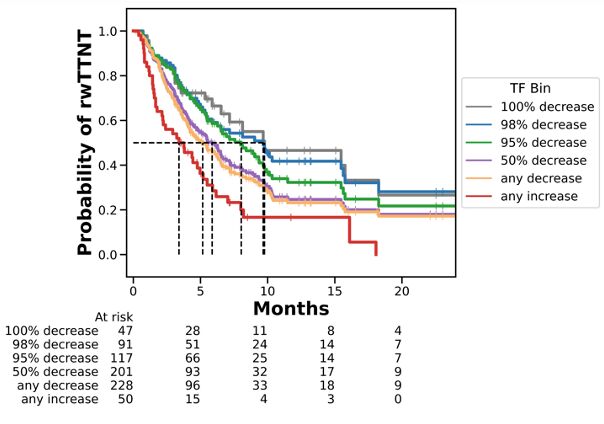
Benjamin Beck, PhD – Assistant Professor and Qualified Researcher, F.R.S.–FNRS
“Our paper is finally out!
Thrilled to share our new publication in Molecular Cancer:
‘SHIP2–PLK1 crosstalk promotes sensitivity to dual inhibition in esophageal squamous cell carcinoma’In this work, we reveal how SHIP2 acts as a key regulator of esophageal squamous cell carcinoma (eSCC) and how its dual inhibition with PLK1 could open new therapeutic possibilities for this aggressive cancer type.
A huge thank you to my amazing co-authors and collaborators for their dedication and creativity throughout this study.”
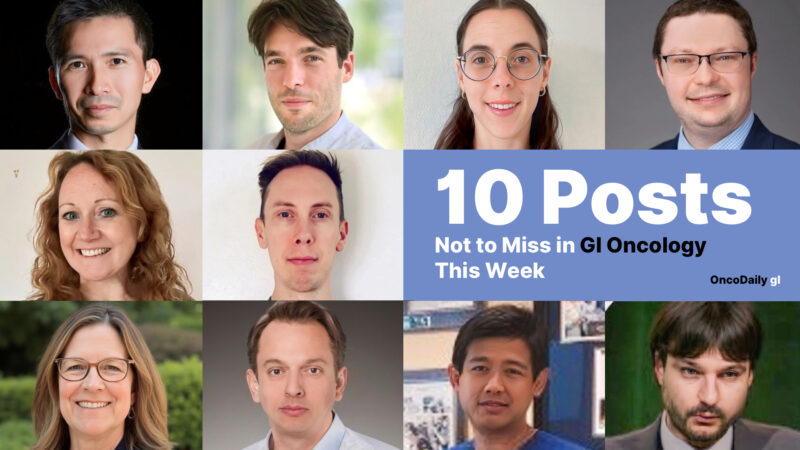
You can also read about 10 Must-Read Posts in GI Oncology from the flast week of October on OncoDaily.


